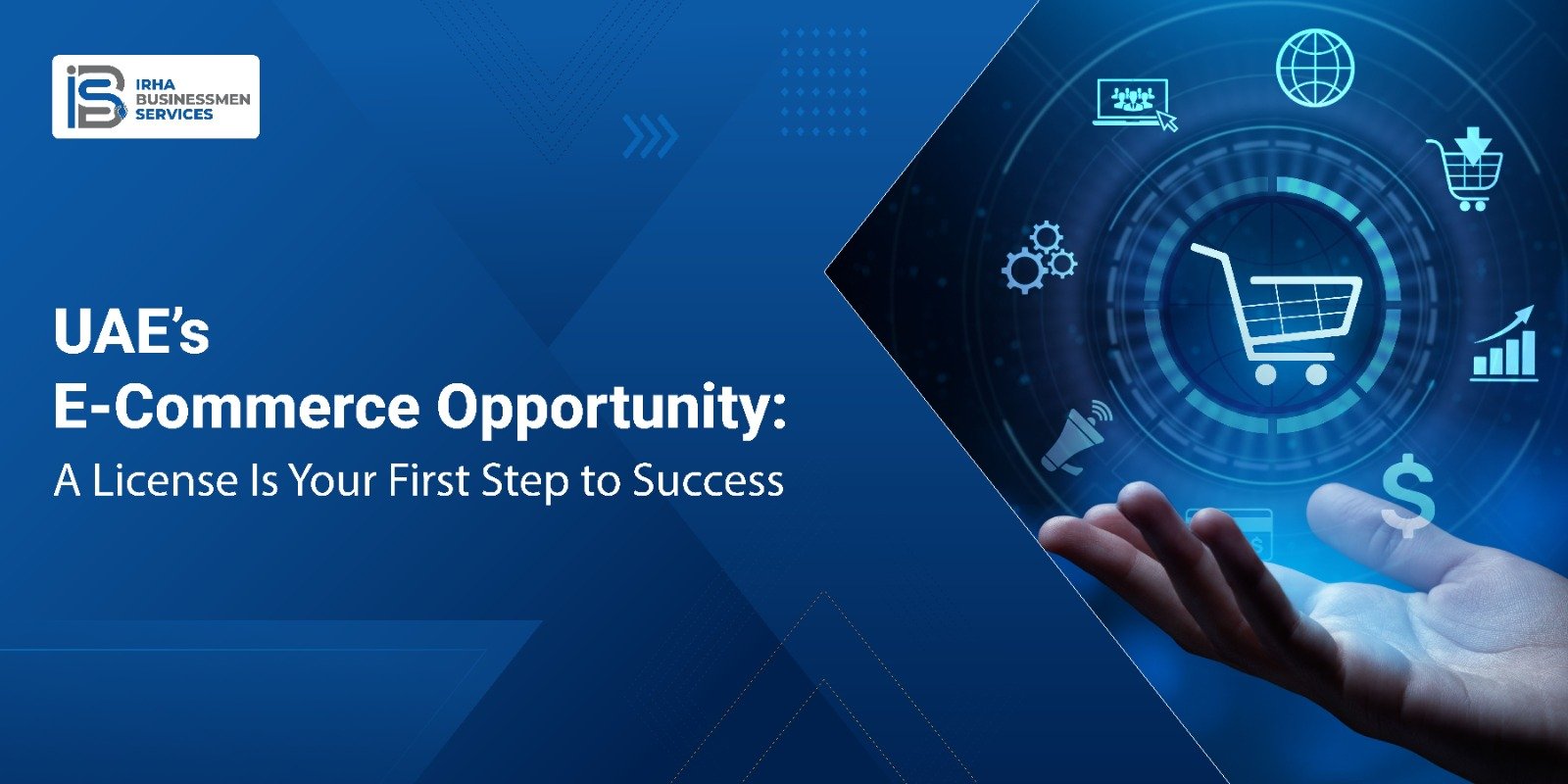UAE’s E-Commerce Opportunity: A License Is Your First Step to Success

The UAE has become a top destination for digital growth in the Middle East, with e-commerce playing a key role in its economic future. As more people choose to shop online, entrepreneurs from around the world are setting up digital businesses in the UAE. As someone who helps clients start businesses here, I’ve seen this trend grow fast.
But to succeed in this market, you need more than just a good product or a nice website — you must first get the correct e-commerce license in the UAE.
Table of Contents
Why the UAE Is a Great Place for Online Business
With strong internet access, modern infrastructure, and a government that supports digital innovation, the UAE’s e-commerce market is expected to cross $10 billion by 2029, according to Statista.
Here’s why many digital entrepreneurs are choosing the UAE:
- A central location connecting global markets
- Government plans like the UAE Vision 2031 that support tech growth
- Support for startups and small businesses
- A population that shops online often
What is an E-Commerce License? Who Needs One?
The Blue Residency targets:
- Influential individuals with a strong impact on climate change
- Researchers and scientists recognized by the UAE Scientists Council for their global environmental contributions
- Entrepreneurs and investors working in renewable energy, sustainability, climate action, and related fields
- Professionals holding environmental roles in government or private entities in the UAE.
How Does the 180-Day Entry Visa Application Work?
An e-commerce license allows you to legally sell goods or services online in the UAE — either within the country or internationally. It’s required for:
- Drop shipping businesses
- Online stores and marketplaces
- Sellers on social media (Instagram, TikTok)
- Subscription-based services
- Digital consultants and service providers
Even if you’re selling through WhatsApp or Facebook Marketplace, you’ll need a license once your sales become regular or large-scale.
Benefits of Getting an E-Commerce License in the UAE
Legal Compliance
The UAE has strict rules for online businesses. Having a license ensures your business meets all legal standards.
Access to Payment Gateways
Top payment platforms like Telr, PayTabs, and Stripe require proof of a valid trade license before allowing you to accept payments.
Open a Business Bank Account
In the UAE, even freelancers need a trade license to open a business bank account.
Apply for Residency Visas
With a valid business license, owners and employees can apply for UAE residency visas.
Tax and Profit Advantages
Free zones offer:
- No corporate or income tax
- Full profit transfer rights
- Customs benefits on imported goods
Step-by-Step Guide to Setting Up an E-Commerce Business in the UAE
Step 1: Choose Your Business Type
Decide whether you’ll sell physical products, digital services, or subscription boxes. This will affect the type of license you need
Step 2: Pick Your Business Jurisdiction
- Mainland: You can operate anywhere in the UAE; license issued by DED.
- Free Zone: 100% foreign ownership, ideal for international sellers.
- Offshore: For non-resident businesses managing global trade — no local UAE market access.
Step 3: Register Your Trade Name
Make sure your business name follows UAE naming rules.
Step 4: Submit Required Documents
You will usually need:
- Passport copy
- Emirates ID (if applicable)
- Business plan
- Reserved trade name
- Office lease or flexi-desk agreement
Step 5: Get Your License and Apply for Visas
Once approved, you’ll receive your e-commerce license. Then, you can apply for investor or employee visas if needed.
Step 6: Start Your Business
Set up your website or app, add secure payment options, and make sure you follow UAE data privacy laws.
How Much Does It Cost?
Costs vary based on where you set up:
- Free zone: AED 5,750 to AED 12,000
- Mainland: AED 13,000 to AED 18,000
- E-Commerce visa: AED 3,500 to AED 6,000 for two years
Prices depend on your business type and visa needs.
UAE’s Vision for a Borderless Digital Future
The UAE wants to double the size of its digital economy by 2031. To support this, it is investing heavily in technology, AI, and global trade — making it a great place for e-commerce growth.
Final Thoughts
Starting an e-commerce business in the UAE offers huge opportunities. But getting the right e-commerce license is the first step toward success. By following the correct setup process, you ensure your business runs smoothly and legally.
For expert help with setting up your business, IRHA Businessmen Services is here to guide you every step of the way.
